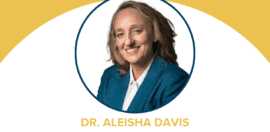Making beaches safer and more enjoyable for everyone

20 October 2023 at 9:00 am
As a long time advocate for plastic waste reform, Dr Ross Headifen was deeply impacted by the volume of plastic waste he saw during a two year volunteering trip to Tanzania; and upon returning home, fostered one of the biggest community litter collection volunteer groups in Melbourne, called Beach Patrol. Read on for our change maker interview with Dr Ross Headifen!
Tell me about Beach Patrol
BeachPatrol and Love Our Street are litter collection volunteer groups in Victoria, operating in 40+ postcodes around Victoria. Groups meet monthly to pick up plastic litter from local beaches, streets or parks and meet like-minded people who are passionate about preserving our environment, wildlife, marine life and ecosystems.
The groups log their data in the LitterStopper app, which feeds into our litter collection database and the Department of Energy, Environment and Climate Action’s LitterWatch database.
With this data, we advocate for changes that will reduce litter, raise awareness of littered beaches and streets and support local and state governments in tackling the issues.
Briefly describe your career trajectory and how you got to your current position.
BP is a volunteer organisation so we run the organisation in our spare time and on weekends. We (my wife and I) were working on a project in Florida to make plastic into a biodegradable plastic material. In the research for that, we learned how bad the plastic waste problem was in the world. When we came back to Australia we saw how bad the plastic pollution was on Melbourne beaches and hence we grew Bp to help this and more importantly to grow awareness amongst local communities about the plastic waste problem. Starting off with 2 groups in 2 post codes, we grew it to more than 50 groups in 50 post codes. We started Love Our street as an inland version of the beach Cleaning groups. These groups pick up plastic litter in streets and parks in their local neighbourhoods. Over 6500 volunteers have now signed up in the past 12 years. Collectively we have picked up 250,000 littered bottles and cans, 17.4 tonnes of other plastic rubbish, 6943 volunteer hours have been spent. In 2019 we developed a phone app called LitterStopper. This allows people to quickly enter their count tallies for each of the items counted. This information is sent off to a data base that displays every entry entered through LitterStopper. The data is also sent to the Victorian government Dept of Energy, environment and climate change to be included in their database called LitterWatch. This is used for the government to make policy decisions on plastic usage.
What does the role mean to you?
It gives us chance to show the world how bad the situation of plastic pollution is.
Take us through a typical day of work for you
As above this is a part time volunteer job. Each group performs one clean per month for 1 hour on a specific location in their local area. At the end the results are collated into different product categories such as bottles, bottle tops, bottle labels, , bags, straws, cups, coffee cups etc. The data is then entered into the LitterStopper app. Running a volunteer group of this size with the large number of groups requires at time significant extra time to manage all the IT issues for the various platforms we use.
What is the biggest lesson you’ve learnt about the not-for-profit sector as the cofounder of Beach Patrol
BP is not only not for profit, but there is no income at all other than grant money we can apply for from time to time. The organisation has ongoing expenses every year. So this can take a lot of time to keep the organisation running.
Identify key challenges you are facing Beach Patrol? How can they be addressed?
Maintaining operating funds, attracting more people to be made aware of the plastic waste/litter problem and its impact on wildlife.
If you could go back in time, what piece of advice would you give yourself as you first embarked on your career?
Go bigger faster!
How do you stay motivated to work in this field?
When we watch the counting tallies go up and up it brings a sense of satisfaction that we are responsible for all this work being done by 1000’s of volunteers hours every month. The sense of satisfaction of thinking no wildlife can be harmed by this rubbish now is very rewarding.
How do you unwind after work?
You really can’t. Plastic usage is ubiquitous and so it is an unending effort to try to make a difference. A difference in the communities, a difference in local government actions, a difference in state legislative policies.







